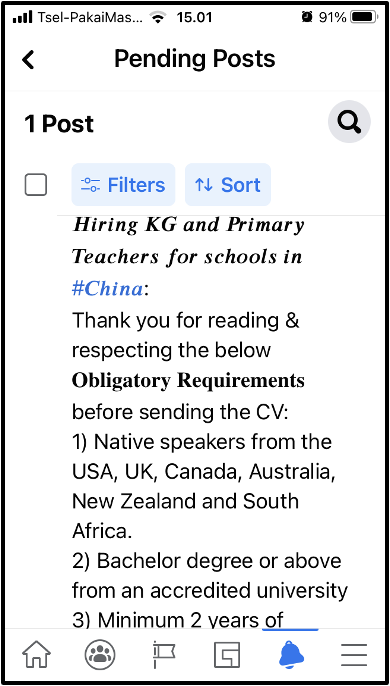International School Advice: Scam #1
There is a clear form of racism apparent in international teaching today.
It is based on your country of origin. And the issue is as blatant as it is pervasive.
Recruitment is often based on passport, rather than skills, qualifications or experience. This is discrimination that everyone involved in international teaching must protest and actively renounce.
Job advertisements for international schools regularly specify applications by Native English Speakers (NES).
The definition is itself is dishonest, as the commonly used NES job requirement actually only applies to ten countries (Australia, Canada, Ireland, New Zealand, South Africa, the four countries of the United Kingdom and the United States).
Yet, 54 countries have English as their official language - the rest are ignored.
The United States does not even have English as their official language. Yet job advertisements from recruiters and international schools can be written like this without sanction:
Why are advertisements phrased this way? Why are they even allowed?
One explanation is the historic, systemic bias in the NES definition. Using data from the CIA World Factbook, the 10 NES countries listed in this job ad have a population identifying as white (on average) of 75.5%. By definition, the large majority of Black and other People of Colour are barred from applying.
The 43 other countries with English as their official language, not mentioned in the job ad and deliberately ignored by the NES definition, have a population identifying as white of 6.8%.
This may just be a coincidence. But notice that this advert puts the discriminatory country of birth requirement ahead of both qualifications and experience.
Dismissively called Non-Native English Speakers (NNES), international teachers from outside the 10 preferred countries do not even have the chance to prove whether their skills, qualifications and experience are sufficiently matched by their English language ability.
The onus on reforming the system falls to those who benefit, particularly those educators, school leaders and recruiters, including me, who have the ‘right’ passport.
NES must be banished from all job advertisements and hiring practices in international schools.
My next post (The Native English Speaker Teaching Scam #2) will address how to overcome the four main barriers used to defend the systemic bias in international teaching recruitment.
We can do better. We should do better.
This post was taken from the Educational Digest International, find the original post and more from EDDi here.

